Legit.ng weekly price check: Items that become expensive due to Ramadan fasting
- Ramadan is here again, there are food items whose prices rise and the ones whose prices fall
- But this week, legit.ng visited the market to inquire from the trader’s items that become expensive due to Ramadan fasting
- At the market, sellers revealed the items that were expensive and informed of a drop in the demand of goods this period
PAY ATTENTION: Click “See First” under the “Following” tab to see Legit.ng News on your Facebook News Feed!
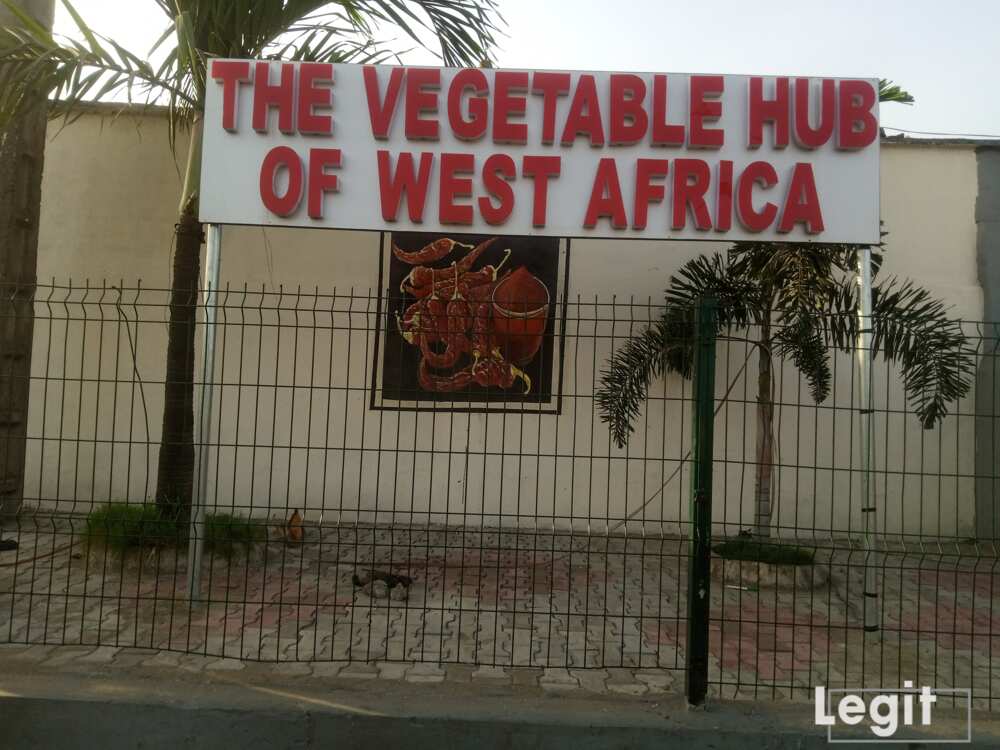
Source: Original
The holy month of Ramadan is here. It is the ninth month of the Islamic calendar. It is considered to be a holy month as it honours the time when Allah through the angel Gabriel, revealed the first verses of the Quran, the holy book of Islam to a caravan trader named Muhammad.
The exact beginning and ending times of Ramadan are based on the sighting of moon. This year, Ramadan began at sundown on Monday, April 12, and would end at sundown on Wednesday, May 12. The final evening of Ramadan consists of a celebration called Eid-al-Fitr, when the traditional month-long fast is ended with a feast.
In Nigeria, during this period, there are goods whose prices fall and there are others whose prices rise due to the scarcity of the items and other well-known factors. The reverse is the case this period, as there are food items whose cost price was stable despite the fast yet available.
Interestingly, there are product or services that informed sellers decision to purchase more goods so as to meet-up with customers demand and some traders who are keen on making more profit, add to the cost price of the items as they spend more money purchasing the goods during Ramadan.
Do you have a groundbreaking story you would like us to publish? Please reach us through info@corp.legit.ng!
Now, the cost of purchase of some goods characterized with the season had risen and others very affordable but traders are worried over low patronage for items generally. The cost price of rice this season is stable as others that are not characterized with the season rises further. Nigerians love to eat. For most people, the daily meal is not complete without eating certain delicacy – that shows the extent people love such meals.
But this week, Legit.ng would focus on the items that become expensive due to Ramadan fasting and inquire from traders their present cost price;
PERISHABLE GOODS
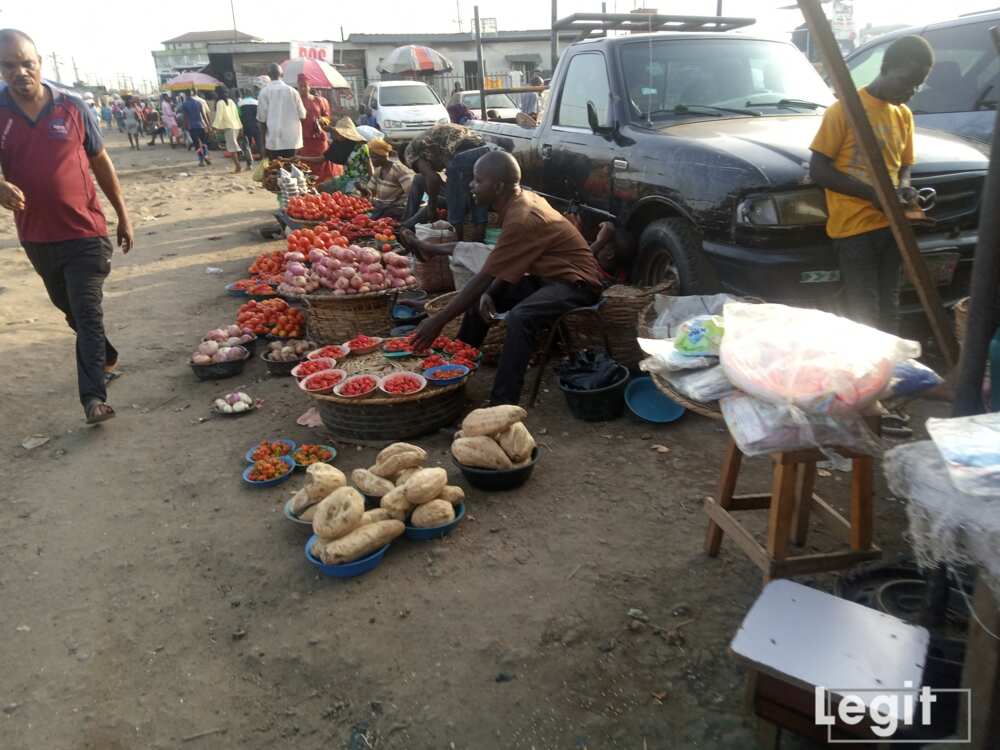
Source: Original
Perishables are items characterized with the holy month as they are very important and needed to make good meals. Sometimes, they are expensive and at other times, they are affordable depending on the season and the weather condition.
At the market this week, traders informed that tomato and onion are still very affordable but pepper is not. Before Ramadan, the cost price of perishable goods was very high and supply low.
Now, a bag of old onion is sold from N10,000 and N12,000 upwards as a basket of tomato is sold from N5,000 upwards.
A seller informed that tomato and onion is still very cheap despite the fast and the type of tomato determine its cost of purchase. At the market, we have Kano tomato and Zaria tomato and their supply is high compared to previous month.
Pepper was very affordable before the commencement of the Ramadan fast but now, pepper is expensive as informed by the traders.
A bag before cost N10,000 but now, it is sold from N15,000 and N25,000 as the supply drops further, the cost price goes higher.
FRUITS
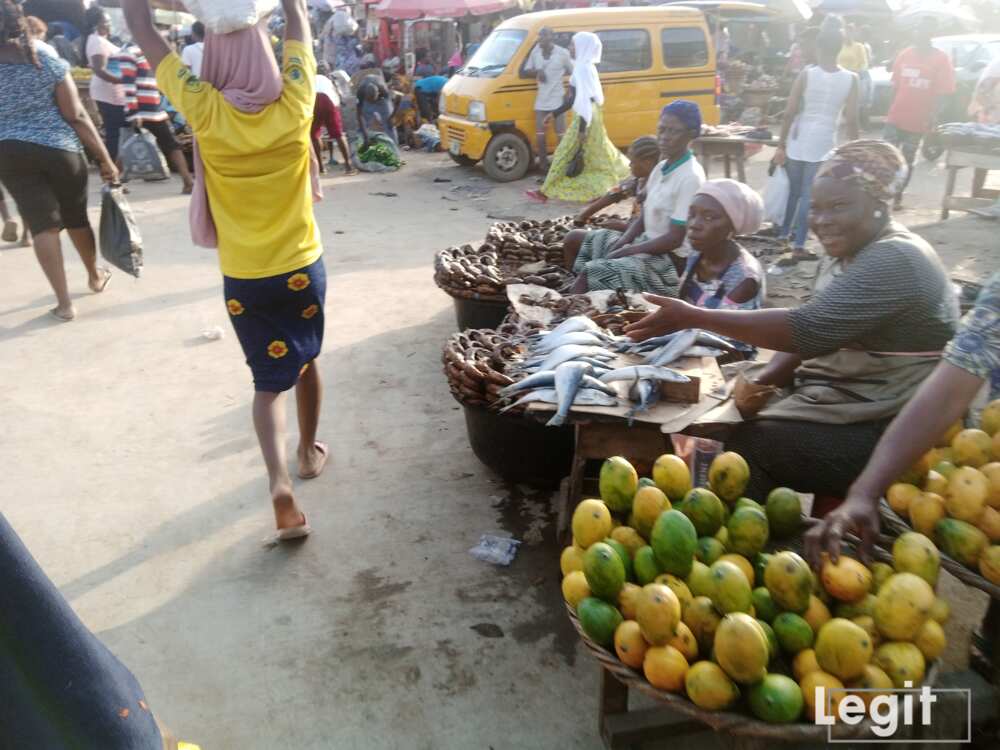
Source: Original
During Ramadan, fruits and vegetables are consumed to break the fast but the availability and affordability of fruits are influenced by their season and the weather condition as well as the supply level.
Before Ramadan, fruits like banana, apple, carrot and pineapple were sold at expensive rates but now, some that are in season are a bit affordable and others that are not in season are expensive.
At the market this week, fruits that are expensive due to Ramadan fast are; oranges, banana, pineapple, apple, berries or grapes but the fruits that are affordable are garden egg, watermelon, African star apple, avocado or pears and dates.

Read also
Coronavirus: Engaging activities you can do to avoid boredom following the stay at home order
Still at the market, apple is sold from N100 and N150, pineapple from N300, oranges depending on the size from N150, banana from N200 and berries from N1,500.
BEANS
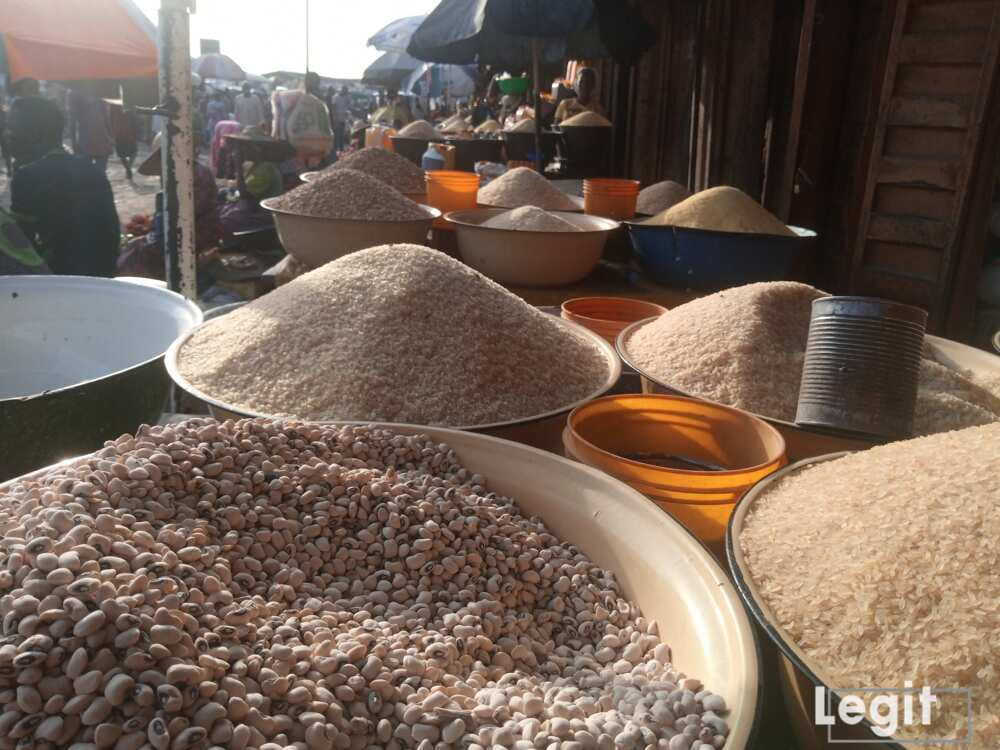
Source: Original
Beans is a major source of protein used in plain cooking or processed dishes. We have different types of beans in Nigeria; we have the white beans, the brown beans and the small beans.
Grown in states like the Niger, Zamfara, Kaduna, Sokoto and Borno, the cost price of beans varies according to the size of the bag, the type of beans and the measurement and planting season as well.
In recent times, due to security issues around the states wherein they are purchased, the cost price of beans rises further.
At the market this week, a bag of beans is sold from N55,000 upwards and the small bag from N25,000 and below. This is a development according to traders, that has affected the purchasing power of the buyers bringing about a drop in the demand for the item.
GARRI
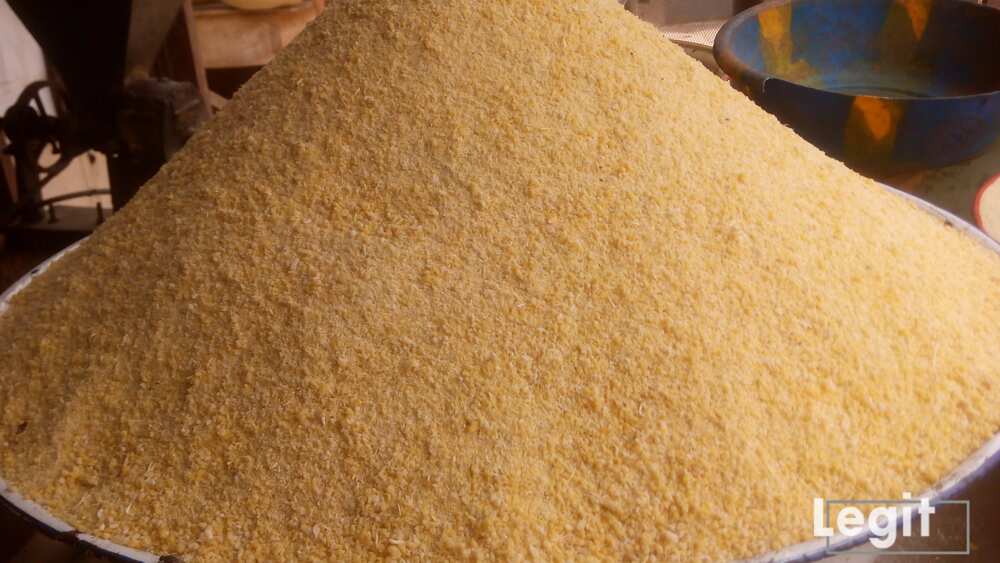
Source: Original
Although very starchy, garri is one major food item whose demand in the market is very high. While some opt for semolina, wheat and cassava or yam flour, others prefer garri hence the cost price in the market remains unstable.
As a popular west African food made from cassava tubers, the cost of purchase of garri in markets across the state fluctuates.
Before Ramadan, a bag of garri is sold from N12,000 and N13,000 but now at the market, a bag of garri is sold from N15,000 upwards and traders informed that it is still rising.
OGBONO
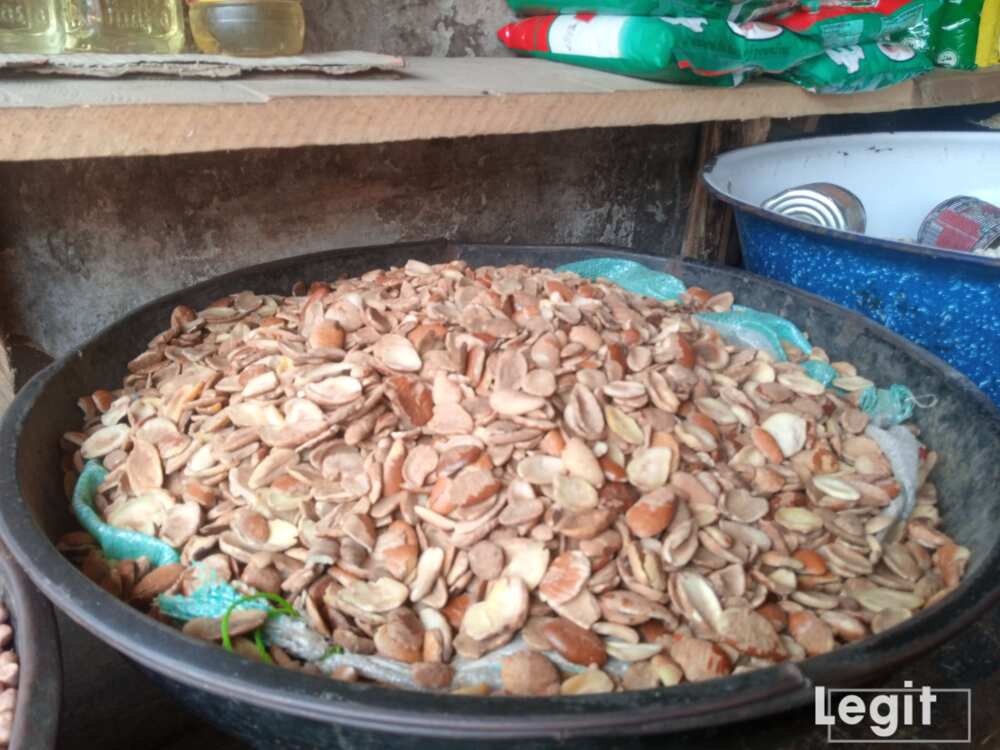
Source: Original
As a seasonal cash crop, grown in states like Enugu, Cross River, Ebonyi and Edo to mention but a few, ogobono is of various type but the one that draws well is very expensive compare to others that does not draw.
As a popular soup ingredient in Nigeria, we have the dry season ogbono and the rainy season ogbono. Buyers prefer the dry season ogbono as it draws longer to the rainy season ogbono popularly called the ‘ugiri’.
The consumption rate for ogbono is very high same with the demand, this makes it one of the most sought-after item in the market.
At the market this week, a foodstuff dealer informed Legit.ng that ogbono is one food item whose cost price soar this Ramadan.
A bag of ogbono in previous week was sold from N160,000 but now, it has increased to N165,000 while a bag of egusi that was sold from N40,000 in previous weeks has risen to N45,000.
GROUNDNUT-OIL AND PALM-OIL
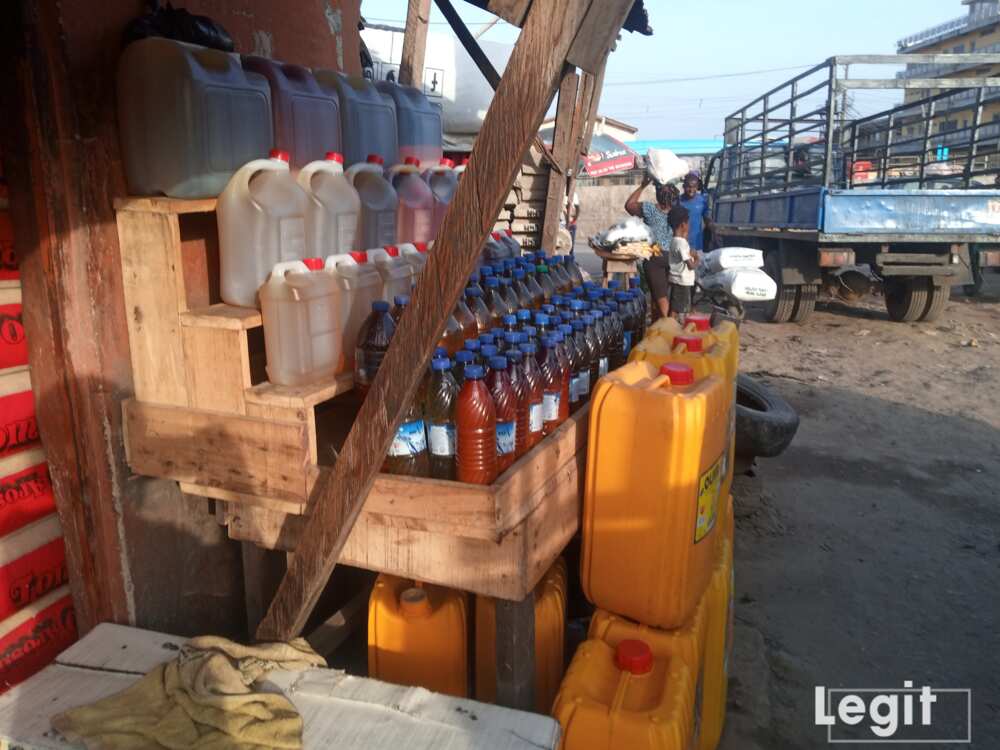
Source: Original
Nigeria is one of the largest producers of palm-oil yet, the cost price of the item is one that bothers business owners in markets across the country.
Palm-oil or vegetable oil or groundnut-oil is used for cooking and are also added to many ready to eat foods.
At a major market in Lagos, palm-oil and groundnut-oil according to sellers is expensive, before the fast and now, during the fasting. For some traders, they are unaware of the factors that led to the increment in the cost of the items but for others, the economy is a huge factor coupled with other issues like high cost of transportation, security issues and the border as well.
Now, a 25-litre of groundnut-oil is sold from N20,000 as against its old price of N18,000 in previous weeks while a 25-litre of palm-oil is sold from N18,000 and below and the refill is sold from N15,000 upwards.
Ramadan is a unique time for Muslims all over the world, as the buying behaviour increases and changes during this holy month. Products such as food, clothes, electronics, books, and jewelry are always in high demand.
At the market visited, traders lament low patronage despite the above assertion even as some goods are sold at affordable prices and their supply level reasonable, they are hopeful of better sales after the fasting.
Listed above are major items given by traders at a popular Lagos market while other goods maintain stability in prices.
INTERVIEW: Garri helped to pay some of my bills in school - University Graduate via Legit TV
Source: Legit.ng







